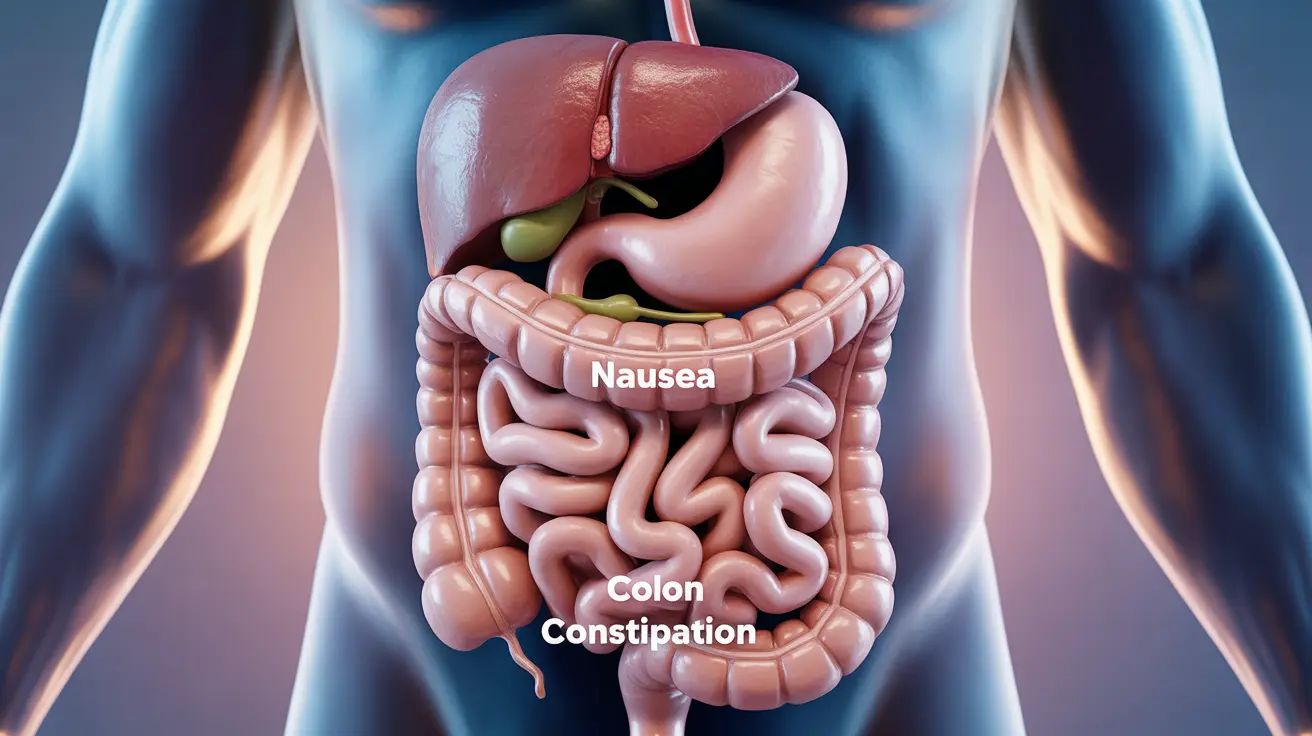Ambien (zolpidem) is a widely prescribed sleep medication that helps millions of people manage insomnia. While effective for short-term sleep problems, it's important to understand the potential side effects that can occur with its use. This comprehensive guide explores the various side effects associated with Ambien, including digestive issues, and provides important information for users.
Common Side Effects of Ambien
Ambien can cause several side effects that range from mild to severe. Understanding these effects is crucial for anyone taking or considering this medication:
Neurological Effects
The most commonly reported side effects include:
- Daytime drowsiness
- Dizziness
- Headache
- Memory problems
- Coordination difficulties
Digestive System Effects
Gastrointestinal side effects are also common with Ambien use:
- Nausea
- Constipation
- Diarrhea
- Changes in appetite
- Stomach discomfort
Understanding Digestive Side Effects
When taking Ambien, some users may experience changes in their digestive system function. These effects can be particularly noticeable with long-term use, as the medication can influence the body's natural rhythms and digestive processes.
Mechanisms Behind Digestive Issues
Several factors contribute to digestive side effects while taking Ambien:
- Slowing of digestive system motility
- Changes in sleep-wake patterns affecting natural digestive timing
- Potential interaction with other medications
- Impact on the nervous system's regulation of digestion
Managing Side Effects
There are several strategies that can help manage Ambien side effects effectively:
Lifestyle Modifications
Consider implementing these changes:
- Maintaining a consistent sleep schedule
- Staying well-hydrated
- Following a balanced diet
- Regular exercise (but not too close to bedtime)
- Avoiding alcohol and certain medications that may interact with Ambien
Prevention Strategies
To minimize the risk of side effects:
- Take Ambien exactly as prescribed
- Use the lowest effective dose
- Don't take the medication with or immediately after a meal
- Ensure you have 7-8 hours available for sleep
When to Seek Medical Attention
Some side effects require immediate medical attention. Contact your healthcare provider if you experience:
- Severe allergic reactions
- Unusual behaviors during sleep
- Significant memory problems
- Severe digestive issues
- Any concerning or persistent side effects
Frequently Asked Questions
Q: What are the common side effects of Ambien, and how often does constipation occur?
A: Common side effects include drowsiness, dizziness, and digestive issues. Constipation occurs in approximately 2% of users, though this can vary based on individual factors and usage patterns.
Q: How does Ambien cause constipation and why is it more likely with long-term use?
A: Ambien can slow down digestive system motility and affect the nervous system's regulation of digestion. Long-term use may lead to more pronounced effects as the body adapts to the medication's presence.
Q: Can constipation from Ambien be managed or prevented, and what should I do if it becomes severe?
A: Yes, constipation can be managed through proper hydration, dietary fiber intake, and regular exercise. If severe constipation occurs, consult your healthcare provider for appropriate interventions.
Q: Who is at higher risk of constipation when taking Ambien?
A: Older adults, those with pre-existing digestive issues, individuals taking other medications that can cause constipation, and people with reduced physical activity are at higher risk.
Q: When should I contact a doctor about constipation or other side effects while using Ambien?
A: Contact your doctor if you experience severe or persistent constipation, if standard management strategies aren't effective, or if you develop any concerning symptoms while taking Ambien.




